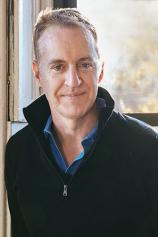Parkland: Birth of a Movement
Review
Parkland: Birth of a Movement
February 14, 2018. Parkland, a small suburban town in South Florida, suddenly becomes engulfed in the aftermath of the deadliest shooting at a high school in American history. After Columbine, which author Dave Cullen wrote about in his bestselling book of the same name, and suffering secondary PTSD, he swore to himself that he would never cover another mass shooting. However, something was profoundly different in the response to Parkland --- a sense of hope and determination --- to the point where he decided to explore it in PARKLAND in only 10 months.
Rather than focusing on certain debates or political responses, Cullen turns his attention to the vibrant personalities of the Stoneman Douglas activists, portrayed not as cogs in the machine --- or the opinions people have made of them --- but the teenagers trying to live their normal lives amidst AP exams, “Spring Awakening” and sitting next to those empty desks at school while launching the March for Our Lives movement. It’s a behind-the-scenes account not usually afforded to victims of mass shootings.
"People may expect this journalistic piece to be tuned to certain tropes of by-minute play-by-play or a look into the killer’s mind. But thankfully that’s not the case. Rather, PARKLAND is the culmination of questions that Cullen and all of us should be asking..."
Cullen notes that “most of these tragedies are reported in the past tense,” as the victims and the shooting itself are forgotten after the end of a news cycle, and states that “an axiom of addiction is that you have to hit rock bottom before you are ready to take on the harsh reality of recovery. America had hit rock bottom.” He also chooses to refer to the March for Our Lives youth activists by their first name “because that’s who they are: they’re kids” and does not mention the killer by name, which I applaud and will do the same here.
Reading PARKLAND took me back to that tragic day. As someone who was born and raised in a town right next to Parkland, where I have known many kids who had graduated from MSD and witnessed the swirl of Facebook posts shared by my Florida friends asking for the whereabouts of victim Jaime Guttenberg, I could only watch helplessly as the events unfolded in my college dorm room 1,000 miles away. Like them, I’ve grown up in a post-Columbine world of lockdown drills and wearied realization that Adult America is not going to save itself. Unlike them, I wondered --- in my pride for their bravery --- if they were handling this sudden attention well. And in attending the MFOL demonstration in Washington, D.C. on March 24th, I could only hope then that they had reached the tipping point for change.
People may expect this journalistic piece to be tuned to certain tropes of by-minute play-by-play or a look into the killer’s mind. But thankfully that’s not the case. Rather, PARKLAND is the culmination of questions that Cullen and all of us should be asking: How do you respond to an unfathomable tragedy? What steps should we be taking for those left behind? How do we examine our roles in supporting survivors after the world wishes to keep them silent? These are not easy questions to answer, but this book emphasizes that those affected by the shooting are not broken beings or ghosts or actors --- they are human beings who want no other person to experience the level of violence that they did. They, and we in solidarity, must march on.
Reviewed by Gabriella Mayer on February 15, 2019
Parkland: Birth of a Movement
- Publication Date: February 11, 2020
- Genres: Current Affairs, Nonfiction, Social Sciences
- Paperback: 400 pages
- Publisher: Harper Paperbacks
- ISBN-10: 0062882961
- ISBN-13: 9780062882967




